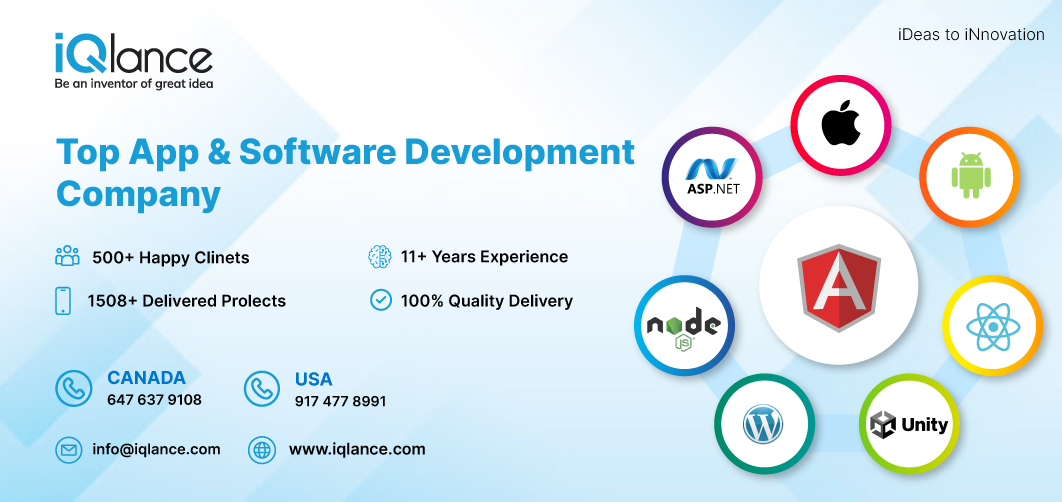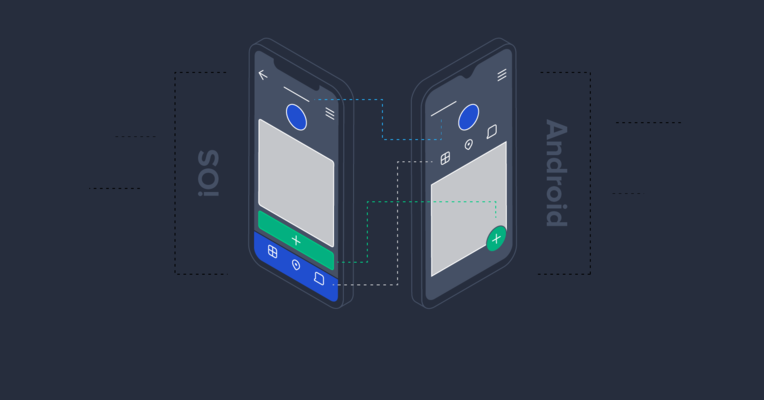How Android App Development Supports Digital Transformation in Enterprises

Strong 8k brings an ultra-HD IPTV experience to your living room and your pocket.
Digital transformation has become a critical priority for enterprises across industries. According to a recent report by IDC, global spending on digital transformation technologies will reach $2.8 trillion in 2025, growing at a compound annual growth rate (CAGR) of 17.1%. Enterprises recognize that adopting digital tools improves operational efficiency, customer engagement, and innovation capabilities. Among the key drivers of this transformation is mobile technology, particularly Android app development. This article explores how Android app development services contribute to enterprise digital transformation, focusing on technical insights, implementation strategies, and business impacts.
✍️ Progressive web apps are gaining traction. Our article on PWAs explains how they deliver fast, lightweight experiences directly from browsers.
What Is Digital Transformation in Enterprises?
Digital transformation involves integrating digital technologies into all business areas. It changes how organizations operate and deliver value to customers. It also requires cultural shifts, encouraging continuous adaptation and innovation.
Key objectives of digital transformation include:
- Enhancing customer experience
- Improving operational agility
- Automating business processes
- Enabling data-driven decision-making
- Facilitating remote and flexible work environments
Mobile applications have become essential tools in achieving these goals, as they provide direct access to services, data, and communication on employees' and customers' preferred devices.
Why Android App Development Is Vital for Enterprises
Android holds approximately 70% of the global mobile OS market share, according to StatCounter data in 2024. Its widespread adoption among diverse user groups makes it a strategic platform for enterprises seeking maximum reach and engagement. Here are several reasons Android app development is critical to enterprise digital transformation:
1. Broad Device Compatibility
Android runs on a wide range of devices, from low-cost smartphones to advanced tablets and wearables. Enterprises can deliver applications that serve employees and customers across different regions and hardware capabilities.
2. Customization and Flexibility
Android offers an open-source ecosystem that allows developers to customize applications deeply, integrate with various enterprise systems, and support unique business requirements.
3. Integration with Enterprise Systems
Modern Android apps can connect with legacy ERP, CRM, supply chain, and cloud systems through APIs, enabling seamless workflows and real-time data access.
4. Cost Efficiency
Developing and deploying Android apps can be more cost-effective than alternative platforms due to lower licensing fees and access to diverse development tools.
5. Security Enhancements
Recent Android versions include advanced security features like hardware-backed key storage and biometric authentication, addressing enterprise concerns about data protection.
Role of an Android App Development Company in Digital Transformation
An experienced Android app development company plays a crucial role in guiding enterprises through the digital transformation journey. Their contributions typically include:
- Requirement Analysis: Understanding business processes and identifying digital gaps.
- Technical Consulting: Advising on the best technologies, frameworks, and integration methods.
- Custom App Development: Designing scalable, secure, and user-friendly Android applications.
- Testing and Quality Assurance: Ensuring apps perform reliably across devices and use cases.
- Maintenance and Support: Providing ongoing updates and troubleshooting to adapt to evolving needs.
Key Benefits of Android App Development Services for Enterprises
Android app development services help enterprises achieve measurable benefits that align with digital transformation objectives:
| Benefit |
Description |
Impact on Enterprise |
| Improved Employee Productivity |
Mobile apps provide employees access to work tools anytime. | Faster decision-making, reduced downtime |
| Enhanced Customer Engagement | Personalized apps improve user experience and loyalty. |
Increased sales and brand recognition |
| Real-Time Data Access | Apps connect to enterprise data in real-time. | Better business insights and responsiveness |
| Process Automation | Apps automate repetitive tasks, reducing manual work. | Cost savings and error reduction |
| Flexible Work Environment | Support for remote work and collaboration on mobile devices. | Higher employee satisfaction and retention |
| Advanced Security | Enterprise-grade security features protect sensitive data. | Compliance with industry regulations |
Technical Insights: How Android Apps Enable Transformation
Android app development services incorporate several technical approaches that facilitate digital transformation:
1. API-Driven Architecture
APIs allow Android apps to communicate with backend systems such as ERP, CRM, or cloud platforms. This architecture supports:
- Real-time data exchange
- Modular app design for easier updates
- Integration with third-party services (e.g., payment gateways)
2. Use of Cross-Platform Frameworks
While native development remains popular, many companies adopt frameworks like Flutter or React Native. These frameworks allow faster development and easier maintenance of Android and iOS apps, supporting broader digital initiatives.
3. Incorporation of AI and ML
Android apps increasingly embed AI and machine learning models for:
- Predictive analytics
- Personalized content delivery
- Automated customer support via chatbots
This enhances the user experience and supports data-driven decisions.
4. Offline Functionality and Sync
Enterprise apps often need to work in low-connectivity areas. Android apps can cache data locally and sync with servers when the network is available, ensuring uninterrupted operations.
5. Security Best Practices
Android apps implement security protocols such as:
- OAuth 2.0 for authentication
- Data encryption at rest and in transit
- Secure coding practices to avoid vulnerabilities
This protects enterprise data and builds user trust.
Steps Enterprises Should Take to Implement Android App Development
For successful digital transformation, enterprises must approach Android app development strategically:
Step 1: Define Clear Business Goals
Identify the challenges or opportunities the app will address, such as improving customer engagement or digitizing supply chain management.
Step 2: Choose the Right Android App Development Company
Look for companies with proven experience in your industry and technical expertise in Android development.
Step 3: Plan for Integration
Ensure the app will integrate seamlessly with existing IT infrastructure and data sources.
Step 4: Focus on User Experience
Design user-friendly interfaces that minimize friction and encourage adoption by employees or customers.
Step 5: Prioritize Security and Compliance
Adopt security measures aligned with industry regulations such as GDPR, HIPAA, or PCI DSS.
Step 6: Monitor and Improve
Use analytics tools to track app usage and gather feedback for continuous improvement.
Real-World Examples of Android App Development Driving Transformation
Several enterprises have successfully used Android apps to advance digital transformation:
Retail Industry
A global retailer developed an Android app for inventory management, enabling staff to scan products and update stock levels in real time. This reduced stockouts by 30% and improved order accuracy.
Healthcare Sector
A healthcare provider built an Android app for remote patient monitoring, connecting medical devices and enabling doctors to access patient data remotely. This improved patient outcomes and reduced hospital visits.
Manufacturing
A manufacturer implemented an Android app to track equipment status and schedule maintenance automatically. This predictive maintenance reduced downtime by 25%.
Conclusion
Android app development services play a crucial role in supporting enterprise digital transformation. Their flexibility, scalability, and broad market reach enable businesses to improve efficiency, customer experience, and innovation. By partnering with a reliable Android app development company, enterprises can navigate technical complexities and build secure, high-performing applications that align with their strategic goals. As digital transformation continues to evolve, Android apps will remain central to enterprises’ efforts to adapt and thrive.
Note: IndiBlogHub features both user-submitted and editorial content. We do not verify third-party contributions. Read our Disclaimer and Privacy Policyfor details.







